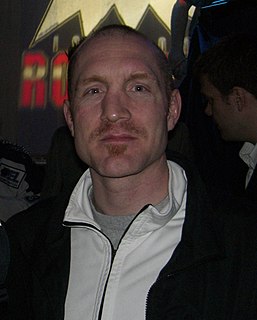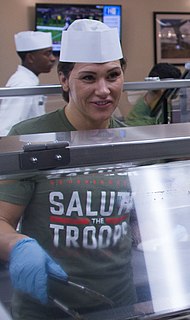A Quote by Ravi Teja
I don't attend parties. After the day's shoot, I go home and spend time with my family. I never take my work home, and neither do I involve my family in work.
Related Quotes
We have a small, tight family. I left home at a young age and the best thing for me was to go home at Christmas-time and spend time with my family and friends. It's kind of funny, most people do turkey and all the trimmings, but we would have a big seafood festival because it's the only time of the year that we'd eat it. We never really went caroling, but once in a while we'd got out for a sleigh ride
I was happy to spend time with my family, get to know my daughter, who was born during The West Wing. I missed her first words. I missed her first steps. I'd leave work before she woke up and got home after she was asleep and didn't really know her. So it was important for that reason to reintroduce myself to the family after all of that hard work.
The thing to me about this sport, all the fans, everyone that watches, everyone that has a career has had a bad day at work. If you have a project, you have a quota that you have to meet, you can screw up at it. At the end of the day, you get to go home to your family; you can bring your work home with you or not.
When I got married and had a child and went to work, my day was all day, all night. You lose your sense of balance. That was in the late '60s, '70s, women went to work, they went crazy. They thought the workplace was much more exciting than the home. They thought the family could wait. And you know what? The family can't wait. And women have now found that out. It all has to do with women, or the homemaker leaving the home and realizing that where they've gone is not as fabulous, or as rewarding, or as self-fulfilling as the balance between the workplace and the home place.
I'd never put all my chips anywhere, because I don't want to close any doors, but I was raised in a very blue-collar family. I was raised by parents who said, 'If you don't go to work every day, you're not contributing', so that's my mentality. I have to work every day; I have to bring home a paycheck.
No work-family balance will ever fully take hold if the social conditions that might make it possible - men who are willing to share parenting and housework, communities that value work in the home as highly as work on the job, and policymakers and elected officials who are prepared to demand family-friendly reforms - remain out of reach.



































